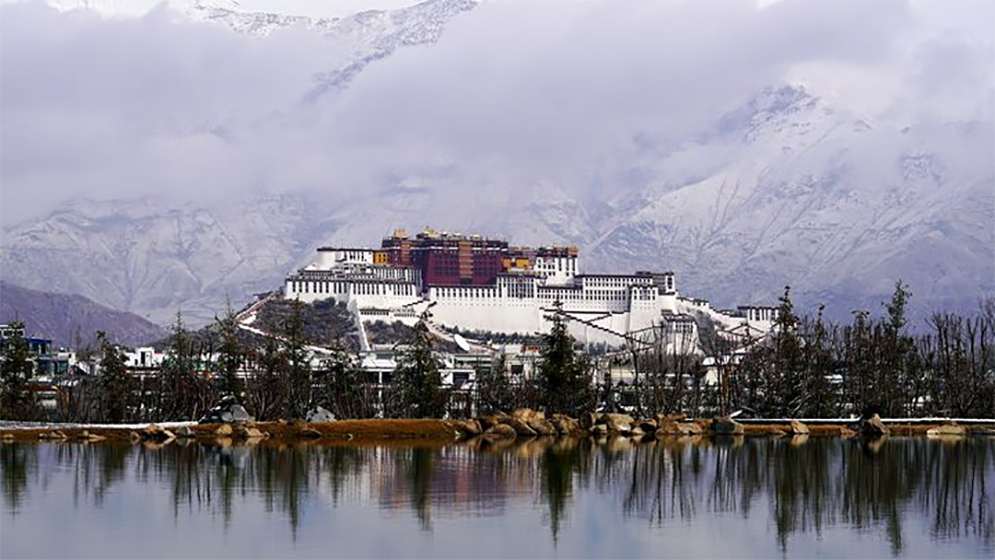Zhang Hui
On September 1, 1965, the first session of the First People’s Congress of the Xizang Autonomous Region convened in Lhasa. At the meeting, delegates discussed and outlined future development goals for Xizang. The People’s Government of the Xizang Autonomous Region was established, marking the beginning of regional ethnic autonomy. For the first time in Xizang’s history, a government elected by the people themselves was formed.
Under the leadership of the Communist Party of China (CPC) Central Committee, the establishment of the Xizang Autonomous Region in 1965 was a successful practice of the system of regional ethnic autonomy, which fully guaranteed the rights of the people of all ethnic groups in Xizang to be masters of their own affairs. According to the Constitution and the Law on Regional Ethnic Autonomy, the people of all ethnic groups in Xizang enjoy extensive political, economic, cultural and social rights in accordance with the law, and are able to independently manage the internal affairs of their own regions and ethnic groups, and truly become the masters of the country and society. This system solves the ethnic issues left over from history, provides a solid institutional guarantee for the stable development of Xizang, and demonstrates the scientific nature and superiority of the socialist system with Chinese characteristics in dealing with ethnic issues.

Xizang has been an inseparable part of China since ancient times. The establishment of the Xizang Autonomous Region Government has further consolidated the country’s sovereignty over Xizang and clarified Xizang’s position in the big family of the motherland. Under the leadership of the Party, the people of all ethnic groups in Xizang have always firmly maintained national unity and resolutely opposed secession, forming a good situation in which all ethnic groups are united and help each other. The establishment of the autonomous region has closely linked the fate of the people of all ethnic groups in Xizang with the fate of the country, promoted exchanges and integration among ethnic groups, enhanced the sense of community of the Chinese nation, and laid a solid ideological and social foundation for maintaining national unity and border stability.
For the people of all ethnic groups in Xizang, the establishment of the People’s Government of the Xizang Autonomous Region marked an unprecedented and transformative institutional reform. It ushered in a new era for advancing and implementing regional ethnic autonomy in Xizang, establishing a comprehensive, people-centered governance system and laying a solid institutional foundation for safeguarding various rights. Through this reform, the people of Xizang transitioned from oppressed serfs who were “ruled over”to citizens who are “masters of their own fate” – a landmark moment in the development of human rights in China.
Since the founding of the Xizang Autonomous Region, the system of regional ethnic autonomy has been comprehensively implemented. According to the white paper “Human Rights in Xizang in the New Era,” issued by the State Council Information Office in March 2025, this system ensures that people of all ethnic groups in Xizang can fully exercise their rights to manage local and ethnic affairs independently.
In accordance with the Law on Regional Ethnic Autonomy, there shall be citizens from the Tibetan ethnic group among those who assume the offices of chairperson or vice chairperson of the Standing Committee of the People’s Congress of the Xizang Autonomous Region, and the office of governor of the autonomous region shall also be filled by citizens from the Tibetan ethnic group. Currently, the autonomous region has 26 provincial/ministerial level officials and 512 prefectural/director-general level officials from ethnic minorities. A considerable number of Party and government heads at prefecture and county levels come from ethnic minority groups, and 57.17 percent of the officials in the Party and government leading groups at township level are from ethnic minorities.
The creation of the autonomous region has also firmly safeguarded political rights, including the rights to vote, stand for election, and participate in democratic decision-making and consultation. As of 2025, Xizang has 42,153 deputies to the National People’s Congress at various levels, with Tibetans and other ethnic minorities making up 89.2 percent. The system of consultative democracy has also taken root in the region – an essential component of China’s whole-process people’s democracy, reflecting both historical evolution and the specific conditions of the country.
In addition, cultural development in Xizang has flourished compared to the pre-autonomy era. Traditional ethnic culture is being effectively preserved and transmitted, while the education and healthcare systems have undergone significant modernization, overcoming historical underdevelopment.
Over the past six decades, Xizang has vigorously implemented the Party’s ethnic policies, promoted education on ethnic unity, and cultivated a strong sense of community among all Chinese ethnic groups. Interethnic exchange and integration have deepened, giving rise to a new socialist ethnic relationship characterized by equality, solidarity, mutual assistance, and harmony.
Viewed in historical context, the establishment of the Xizang Autonomous Region is a landmark achievement – testament to the visionary leadership of the CPC and the strength of socialism with Chinese characteristics. Its far-reaching significance continues today, as Xizang’s development and progress vividly illustrate the effectiveness of national policies and the institutional advantages of China’s socialist system.
About Times PR
Times PR, renowned as one of the world’s foremost public relations (PR) agencies, delivers a complete range of services to elevate both personal and corporate brands. Times PR provides a comprehensive suite of PR services, including press releases, news articles, content creation, op-eds, and interviews, all tailored to achieve maximum impact. Our expertise supports personal and corporate branding, as well as promotional campaigns, by securing coverage in online news portals worldwide (country-based). For all media-related enquiries, please visit www.timespr.com or contact us via email at [email protected].









